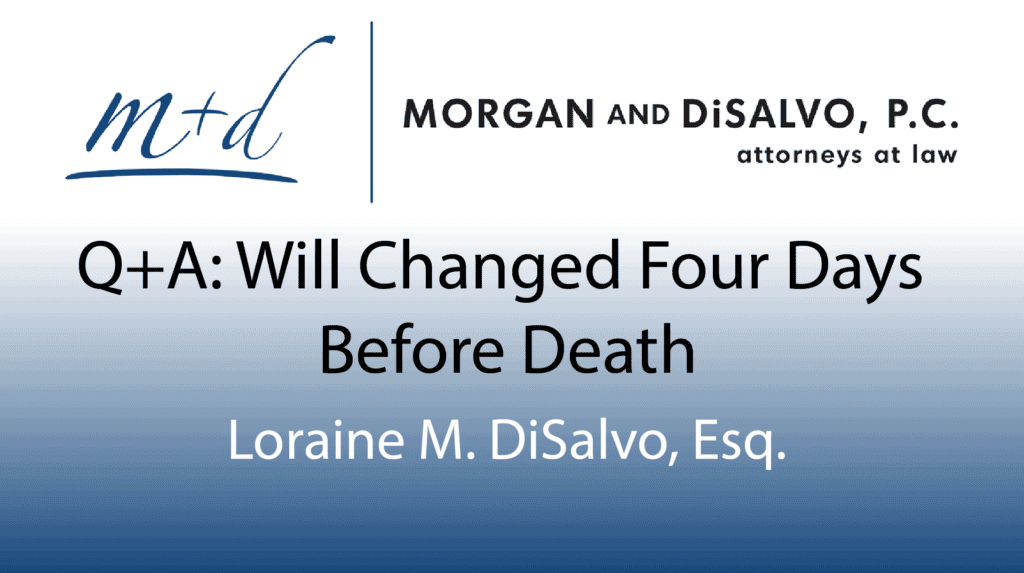Question: If a Will is changed four days before death when the signer is oxygen-deprived, is the Will legal?
Background: My stepfather and my mother were to inherit my aunt’s home after her son died. My stepfather passed before my aunt’s son did. His children changed his Will four days before his death to add themselves as beneficiaries to anything he was to inherit. They were represented by the same attorney my aunt used to draw up her Will.
Loraine’s Answer: Please accept my condolences on the loss of your stepfather. As for your question, the answer is maybe. If your stepfather was lucid at the time he signed the Will, if he had the relatively low level of competency needed to make a valid Will, if he agreed with the provisions of the new Will, and if the Will was signed and witnessed correctly, then it’s likely valid. If any of those things is not true, then the Will may not be valid. If your mother survived your stepfather and believes that his Will is not valid, then she may be able to either challenge the Will, make a claim for a year’s support against his estate (assuming they lived in Georgia – if not, then she might have other rights), or both. She needs to consult an attorney in the relevant state who handles contested estate matters, and she should do so as soon as possible.
Key Estate Planning Takeaway: Individuals can change their Wills whenever they decide to do so, as long as they are competent to do so. However, if a Will is changed under circumstances that make it appear possible that the person who signed a Will may not have been sufficiently competent to make the Will, of if the person’s heirs believe that the Will may actually reflect the results of undue influence from others, then the person’s heirs may try to challenge the Will’s validity. If you are the heir to a loved one’s estate, if you believe that the loved one’s Will was changed when the signer was compromised in some way, either physically or mentally, and if you are considering whether you should challenge the Will, then you should consult with a fiduciary litigation attorney to review your options and determine what steps you may want to take.
This “Q&A with Loraine” blog series features answers from Morgan + DiSalvo Partner Loraine DiSalvo to questions posted on www.avvo.com. A key takeaway from each exchange highlights an important facet of estate planning.




